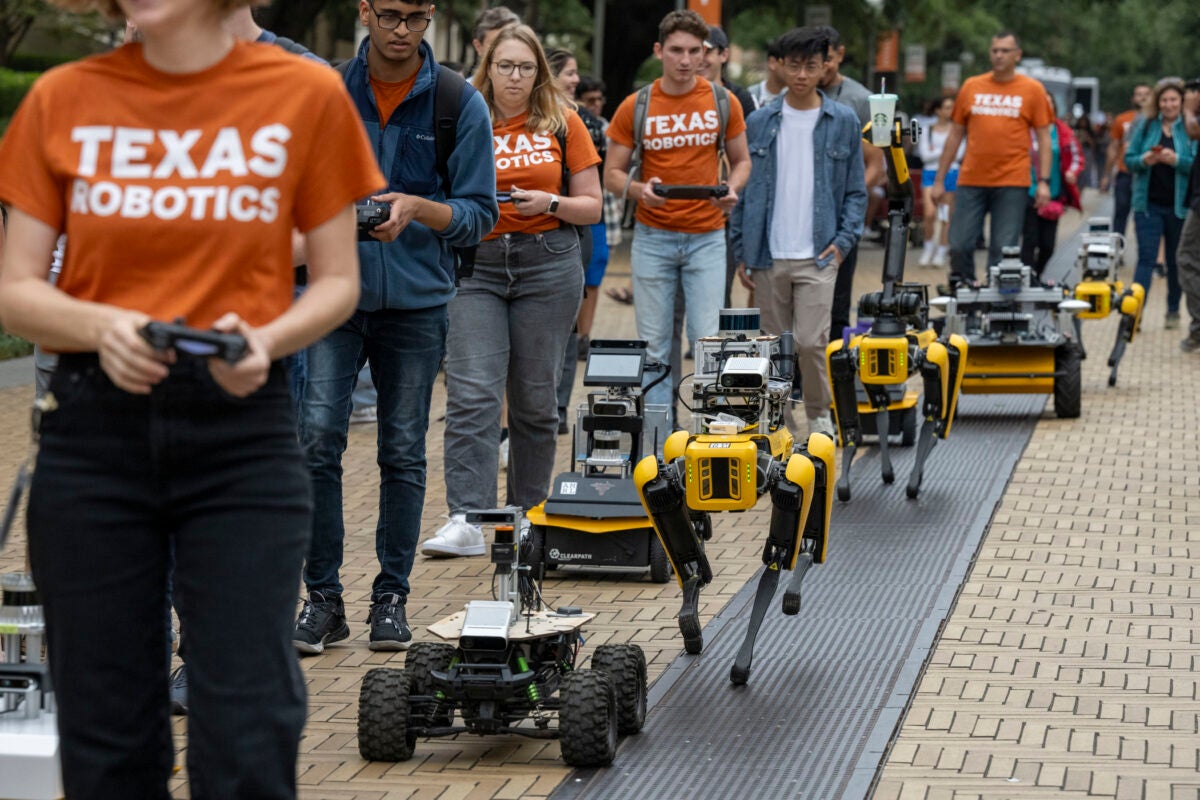NSF Funded Expedition Project Uses AI to Rethink Computer Operating Systems
Aditya Akella leads the project that aims to boost performance of OSes and help enable assistant robots, autonomous vehicles and smart cities.

Research that will use artificial intelligence to boost the performance and energy efficiency of computer operating systems will be led by a team from The University of Texas at Austin, thanks to a major grant from the U.S. National Science Foundation’s Expeditions in Computing program.
Today’s operating systems pose a significant barrier to a number of promised exciting innovations in computer hardware and applications — from personal assistant robots to autonomous vehicles to edge computing that could enable smart cities and less energy-intensive cloud computing. These operating systems often follow “one-size-fits-all” rules for how hardware resources get allocated between different applications running simultaneously. The inflexibility of these rules makes it hard to integrate new advancements, resulting in poor performance and inefficient use, a problem the UT research team plans to tackle by leveraging AI.
“The Learning Directed Operating System (LDOS) will employ AI-aided intelligent resource management and auto-adapt as new applications and hardware emerge,” said Aditya Akella, the Regents Chair in Computer Sciences #1 who is leading the project. “This will enable computing devices to be used at near-optimal efficiency while meeting the needs of arbitrary applications, and it will make computing infrastructure ‘self-driving’ by automating OS implementation and management.”
Akella said the project would extend beyond academics, bringing together not only computer scientists from UT, the Texas Advanced Computing Center, the University of Illinois at Urbana-Champaign, the University of Pennsylvania and the University of Wisconsin-Madison, but also industry partners from Amazon, Bosch, Cisco, Google, Microsoft and Broadcom.
“These partners collectively develop and run operating systems for much of the world’s computing infrastructure, and we will work with them to create the next-generation open-source intelligent and adaptive OS,” Akella said. “We believe that the project offers a timely opportunity to fundamentally change the trajectory of computing.”
He added that the new style of OS could help autonomous robots become “the smartphones of the 2030s and beyond.”
“The smartphone revolution was enabled by new OS frameworks (for example, iOS and Android) that enabled users to run arbitrary third-party apps that have come to determine how they interact with technology and essential services,” he said. “LDOS can similarly usher in the era of affordable personal robots and apps that support our day-to-day activities and improve society for all, particularly for aging and disadvantaged populations.”
In addition to the research initiative, the project will create new undergraduate and graduate curricula with modules, courses and certificates exploring the interplay of computer systems and AI. The project’s initiatives for broadening participation are designed to cultivate leadership among underrepresented groups in AI and prepare them for AI and computer systems technology and research careers. These initiatives seek to benefit hundreds to thousands of students each year.
This project has a natural synergy with UT’s Machine Learning Laboratory, where fundamental questions on new generative AI and machine learning techniques are being explored, and with the Center for Generative AI, which offers high-end GPU resources to train and evaluate new generative AI models.
Co-principal investigators from UT’s Department of Computer Science are Joydeep Biswas, Swarat Chaudhuri, Shuchi Chawla, Işıl Dillig, Daehyeok Kim, and Chris Rossbach. Co-PIs from UT’s Chandra Family Department of Electrical and Computer Engineering are Alex Dimakis and Sanjay Shakkottai.
The grant is for $12 million over five years, of which $9.3 million will come to UT. Expeditions awards represent some of the largest investments provided by the NSF’s Directorate for Computer and Information Science and Engineering. The full name of the project is NSF Expeditions in Computing: Learning Directed Operating System (LDOS) – A Clean-Slate Paradigm for Operating Systems Design and Implementation.
This new support further advances the University’s Year of AI, an initiative showcasing UT’s commitment to developing innovations and growing leaders to navigate the ever-evolving landscape brought about by AI.



